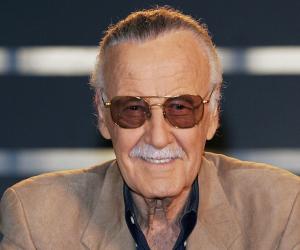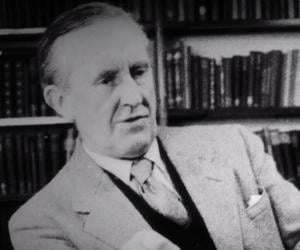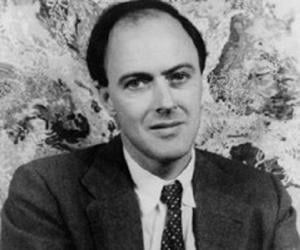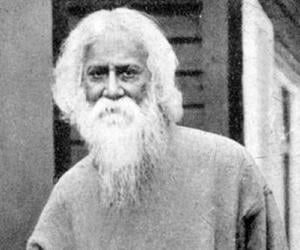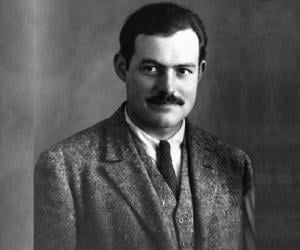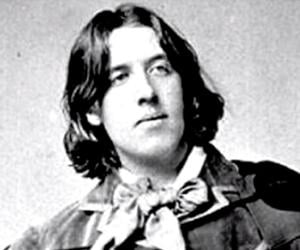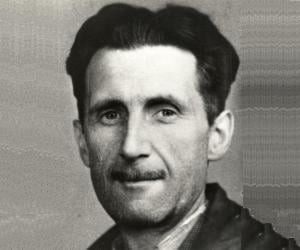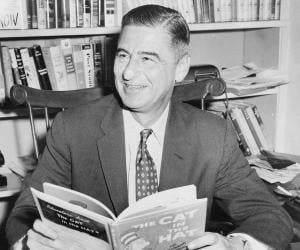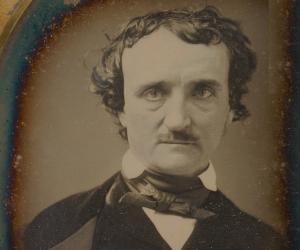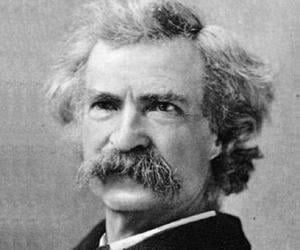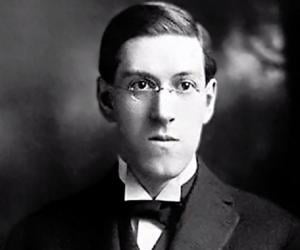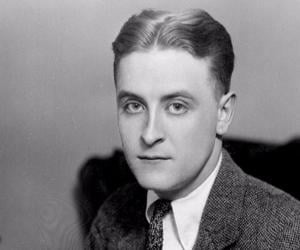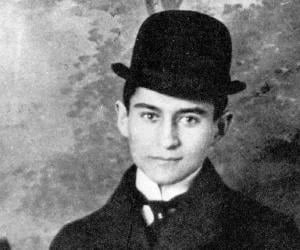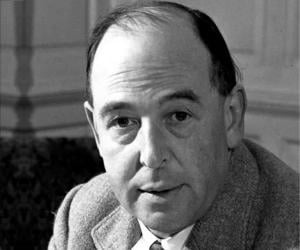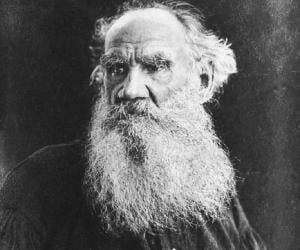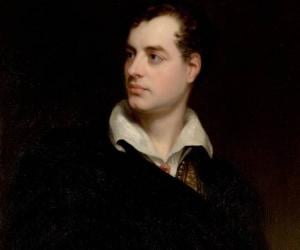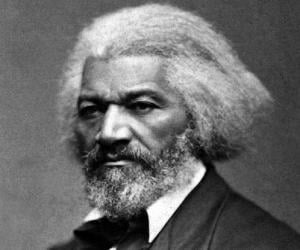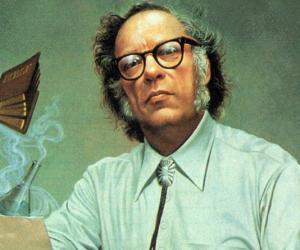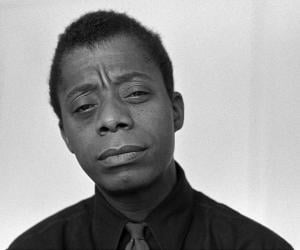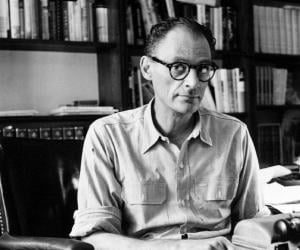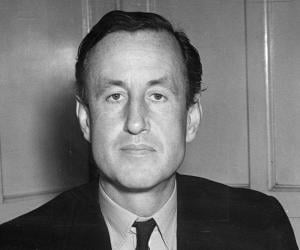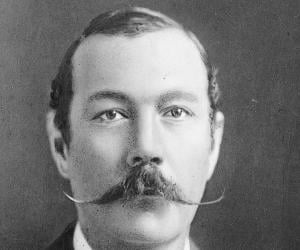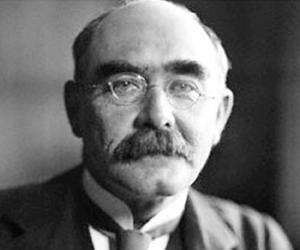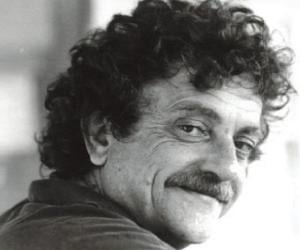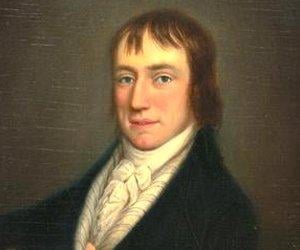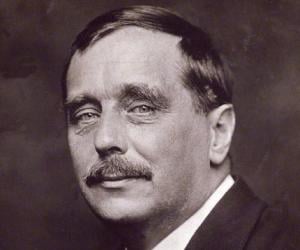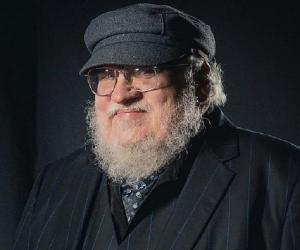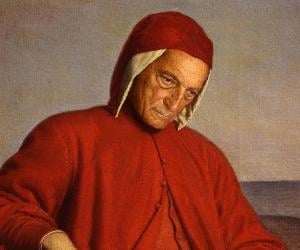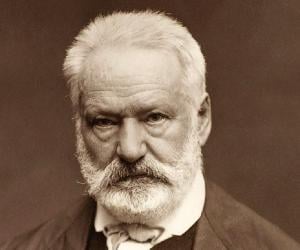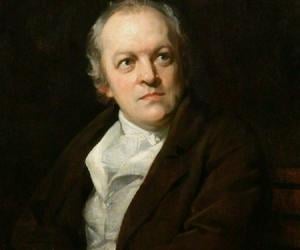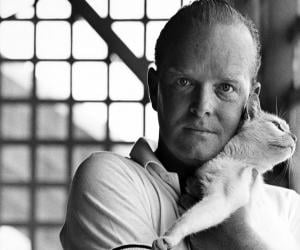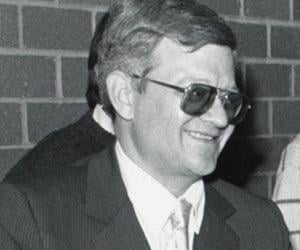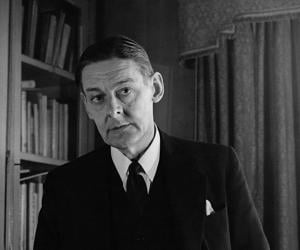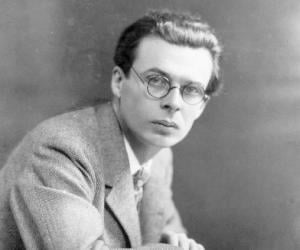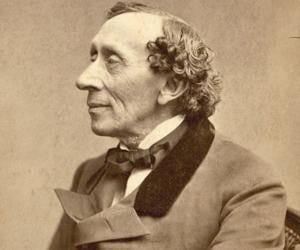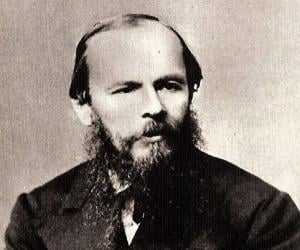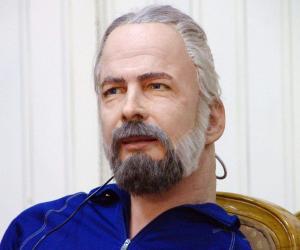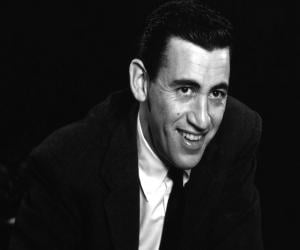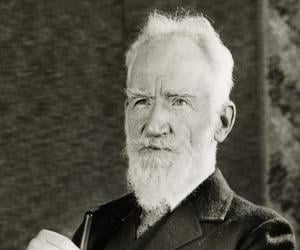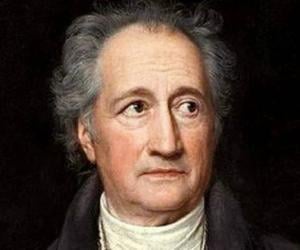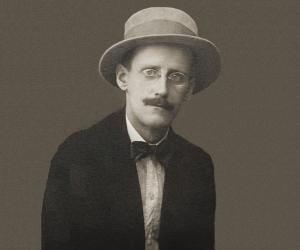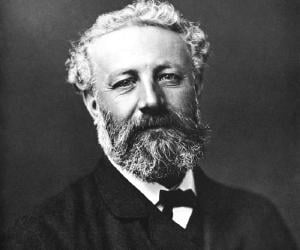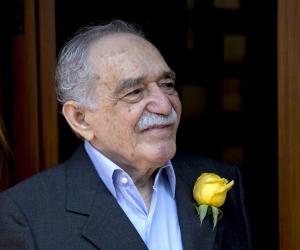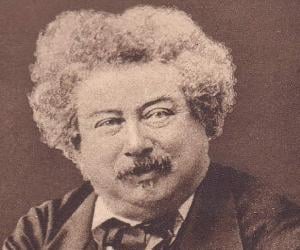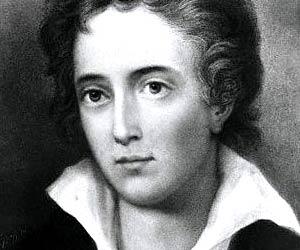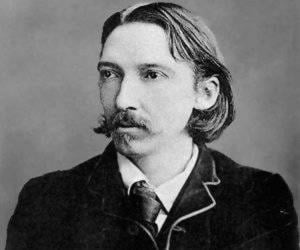Stan Lee was one of the most popular comic book writers, thanks to his appearances in several Marvel movies. He is well-known as the co-creator of many famous superheroes, including Iron Man, Spider-Man, and the Hulk. He pioneered a naturalistic method to writing superhero comics and challenged the Comics Code Authority, which ultimately led to changes in its policies.
Considered one of the greatest authors, JRR Tolkien is popularly called the father of the modern fantasy literature. He is best known for his high fantasy classic works The Hobbit and The Lord of the Rings, which is set in a conceived world called the Middle-Earth. Many years after his death, Tolkien continues to be one of the best-selling writers.
British writer, Roald Dahl, is considered as one of the greatest children’s authors. He is one of the best-selling authors of all-time and had a career spanning decades. Charlie and the Chocolate Factory, James and the Giant Peach, The Witches, The Twits and Matilda are some of his classic works. He also wrote short stories and novels meant for adults.
Rabindranath Tagore was an Indian polymath who contributed greatly to the fields of literature, art, and philosophy. Referred to as the Bard of Bengal, Tagore is credited with reshaping Bengali literature and music. The first non-European to receive the Nobel Prize in Literature, Tagore is also credited with composing the national anthems of India and Bangladesh.
Ernest Hemingway was an American novelist and short-story writer who had a strong impact on 20th-century fiction. He published seven novels and six short-story collections and won the Nobel Prize in Literature in 1954. A Farewell to Arms, For Whom the Bell Tolls and The Old Man and the Sea are some of his classic works. He ended his own life in July 1961.
Widely regarded as one of the most popular writers of all time, Oscar Wilde is best remembered for his plays and epigrams. He was also one of the best-known personalities during his time as he was popular for his conversational skills, flamboyant dressing sense, and biting wit. Imprisoned in 1895 for consensual homosexual acts, Oscar Wilde was pardoned posthumously in 2017.
The king of dystopia and satire, George Orwell, the pen name adopted by Eric Arthur Blair, was a well-known novelist and critic of the 20th century. A man with a strong mind of his own, Orwell never backed down from stating his views on the socio-political climate he lived in, which he expressed profusely through his influential essays and novels.
Dr. Seuss was an American children's author, illustrator, and political cartoonist. He is credited with writing some of the most famous children's books ever, including The Cat in the Hat. His works were translated into over 20 languages and sold more than 600 million copies by the time of his death. Many of his creations were adapted into animated cartoons.
American writer Edgar Allan Poe is regarded as the architect of modern short story, the inventor of the detective-fiction genre and a major contributor towards science fiction genre. The influential writer is recognised for his tales of mystery and macabre. His notable works include The Raven (poem), The Tell-Tale Heart and The Fall of the House of Usher (short stories).
Mark Twain, “the father of American literature,” was one of the world’s greatest 19-th century humorists and authors. His novels The Adventures of Tom Sawyer and the Adventures of Huckleberry Finn were drawn from his childhood experiences in Missouri. In his later life, he sunk into bankruptcy and also recovered.
HP Lovecraft was a writer of weird and horror fiction and is known for his creation of Cthulhu Mythos, which has inspired a large body of games and music. His stories focused on his interpretation of humanity's place in the universe. He was virtually unknown during his lifetime, but is now considered a significant 20th-century author of supernatural horror fiction.
Novelist, essayist, screenwriter, and short-story writer F. Scott Fitzgerald is widely regarded as one of the greatest American writers of the 20th century. However, he wasn’t much popular during his lifetime. His works gained international acclaim only in the years following his untimely death at 44. Many of his works have been adapted into films.
Considered one of the major authors of the 20th century, Franz Kafka was a Bohemian short-story writer and novelist. Franz Kafka is credited for being one of the earliest German-speaking authors to explore themes like absurdity, existential anxiety, and alienation. The term Kafkaesque is now widely used in the English language to explain those situations experienced by his characters.
C. S. Lewis was a British writer whose books have sold millions of copies worldwide after having been translated into over 30 languages. His works, such as The Chronicles of Narnia, have inspired the works of other famous authors. Lewis' work continues to attract readership and he was ranked 11th on The Times' 50 greatest British writers since 1945 list.
Russian writer, Leo Tolstoy, is widely considered as one of the greatest authors ever. After experiencing a profound moral crisis in the 1870s, Tolstoy went through a phase of spiritual awakening, which had a great impact on his subsequent works that incorporated ideas on nonviolent resistance. These works influenced personalities like Mahatma Gandhi, thereby effectively changing the course of history.
Widely considered one of the greatest British poets of all time, Lord Byron remains influential as his works are widely read even today. He was also one of the most important personalities of the Romantic Movement. He is also known for his role in the Greek War of Independence, for which the Greeks consider him a national hero.
Social reformer and abolitionist, Frederick Douglass was a national leader of the abolitionist movement in Massachusetts and New York. Born into slavery, he had a difficult early life. Eventually, he managed to escape and dedicated the rest of his life to promoting the cause of abolition. He was a great orator and writer.
Isaac Asimov was an American writer. Best known for his science fiction works, Asimov was regarded as one of the Big Three writers along with Arthur C. Clarke and Robert A. Heinlein. Asimov is credited with influencing most sci-fi writers since the 1950s. Nobel Prize winner Paul Krugman stated that one of Asimov's works inspired him to take up Economics.
Amongst the greatest writers of the 20th century and a leading literary voice in the civil rights movement, James Baldwin extensively explored issues like race, sexuality and humanity in his work. His best known work include his debut novel Go Tell It on the Mountain and his books of essays Notes of a Native Son and Nobody Knows My Name.
Arthur Miller was an American essayist and playwright. Miller is credited with creating popular plays, such as Death of a Salesman, which is widely regarded as one of the best American plays of the 20th century. Thanks to his illustrious career, which spanned more than 70 years, Arthur Miller is regarded as one of the 20th century's greatest dramatists.
Ian Fleming was a British writer, naval intelligence officer, and journalist. Fleming is credited with creating one of the most popular characters of all time, James Bond. His James Bond series of novels have sold more than 100 million copies, making them one of the best-selling fictional book series in history. Jamaica’s Ian Fleming International Airport is named after him.
English journalist, short-story writer, poet, and novelist Rudyard Kipling is best remembered for his fiction work The Jungle Book. He was born in India and many of his works are inspired by his life in the country. He was one of the most popular English writers in the late 19th and early 20th century.
Robert Frost was an American poet. An influential poet, Frost was honored with four Pulitzer Prizes for Poetry, the only poet to receive four such awards. One of America's public literary figures, Robert Frost received the Congressional Gold Medal in 1960. His works influenced other poets like Robert Francis, James Wright, Edward Thomas, Richard Wilbur, and Seamus Heaney.
Science-fiction author Kurt Vonnegut is best remembered for the novel Slaughterhouse-Five, which became a New York Times bestseller. The Hugo Award-winner had also fought against the Germans in World War II and expressed his anti-war and atheist views through his works, which also include short stories, plays, and autobiographical works.
English poet William Wordsworth, along with Samuel Taylor Coleridge, released Lyrical Ballads in 1798, which set the tone for the Romantic Age of English Literature. Wordsworth was known for his poems I Wandered Lonely as a Cloud, The Prelude, and The Solitary Reaper. He also served as the Poet Laureate.
H. G. Wells was an English writer. Although he was prolific in many genres, he is best remembered for his work on sci-fi novels, for which he is often referred to as the father of science fiction. His 1901 novel The First Men in the Moon became so influential that a lunar impact crater is named after him.
Dante Alighieri was an Italian writer, poet, and philosopher. His work Divine Comedy is widely regarded as the greatest literary work ever produced in the Italian language and the most prominent poem of the Middle Ages. Often referred to as the father of the Italian language, Dante Alighieri played a crucial role in establishing the Italian literature.
Victor Hugo was a French poet, dramatist, and novelist of the Romantic movement. Regarded as one of the best-known and greatest French writers of all time, Victor Hugo wrote abundantly during his career that spanned over six decades. Thanks to his works, such as Hernani and Cromwell, Victor Hugo was one of the leading figures of the Romantic literary movement.
English writer and philosopher Aldous Huxley wrote countless books, including novels, short stories, non-fiction, and poems. He is best remembered for his science-fiction novels Brave New World and Island. The seven-time Nobel Prize nominee was also a Companion of Literature of the Royal Society of Literature and a Vedanta believer.
Walt Whitman was an American poet, journalist, and essayist. Also a humanist, Whitman played a crucial role in the shift between transcendentalism and realism. Often referred to as the father of free verse, Whitman is one of the most influential American poets of all time. Several decades after his death, Walt Whitman's poetry remains influential.
Philip K. Dick was an American writer who was known for his work that explores varied social and philosophical themes. Dick's novels have inspired films like Blade Runner, Total Recall, Minority Report, and The Adjustment Bureau. In 2005, his novel Ubik was included in Time magazine's list of 100 greatest novels published in English since 1923.
Nobel Prize-winning playwright and author George Bernard Shaw was best known for his realism and his support for women’s rights and socialism. His ideas gave rise to the word “Shavian.” His drama Pygmalion inspired the musical My Fair Lady. His other notable works include Candida and Man and Superman.
Regarded as the greatest literary figure in Germany's modern era, Johann Wolfgang von Goethe was a statesman and writer. Apart from writing poetry and prose, he also wrote treatises on color, anatomy, and botany. Thanks to his literary genius, Goethe was made part of the Duke's privy council in Weimar and he implemented several reforms at the University of Jena.
James Joyce was an Irish novelist, poet, teacher, short story writer, and literary critic. Widely considered one of the 20th century's most important and influential writers, James Joyce contributed immensely to the modernist avant-garde movement. Joyce's work has influenced several scholars and writers, such as Jorge Luis Borges, Salman Rushdie, Seán Ó Ríordáin, Flann O'Brien, John Updike, and Cormac McCarthy.
Nobel Prize-winning Colombian author Gabriel Garcia Marquez, also known as “Gabo,” is remembered as one of the most prominent figures of the magic realism literary style. His novels One Hundred Years of Solitude and Love in the Time of Cholera have achieved cult status. He previously worked as a journalist.
One of the most widely read French authors of all time, Alexandre Dumas was prolific in several genres. He joined the army as a young man and later became a full-time writer. Starting his writing career as a playwright, he moved on to writing novels. His novels have been adapted into nearly 200 films in the past century.
Robert Louis Stevenson was a Scottish travel writer, poet, and novelist. A popular writer in his lifetime, Stevenson went about traveling widely and writing prolifically even as he suffered from bronchial trouble; his will power and love for writing won the hearts of many other writers. In 2018, he was ranked as the world's 26th-most-translated author.
